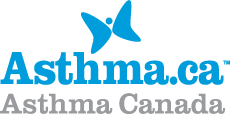Asthma and Pneumococcal Disease
Pneumococcal disease is caused by bacteria. There are two main types of pneumococcal disease.
Non-invasive pneumococcal disease can cause infections on the ears, sinuses or lungs.
Invasive pneumococcal disease (IPD) is a lot more serious and can even be life-threatening. IPD can lead to pneumonia, bacteremia, sepsis or meningitis. Each year, approximately 3,000 cases of IPD are reported in Canada. Most are among the very young (those under the age of 5) or the elderly (those 65 and older).[1]
Risks of Pneumococcal Disease
Anyone can get pneumococcal disease but some people are at higher risk of infection or its complications. Every child under the age of 2 is at higher risk of IPD. Also, children with an immunocompromising condition or chronic illness such as: asthma[2], diabetes; HIV; chronic kidney, liver or heart disease; absent or poorly working spleen; nephrotic syndrome; chronic neurologic conditions causing difficulty with oral secretions; CSF leaks; transplants; immune deficiency (primary or secondary); sickle cell disease; and children with cochlear implants or on immunosuppressive therapy.[3]
Adults with the following conditions are also at higher risk of IPD: asthma, HIV, diabetes, heart disease; and adults:
- who are smokers
- who have smoking-related diseases such as COPD
- without a working spleen
- with weakened immune systems
- who are on immunosuppressive therapy
- 65 years of age and older
- who are homeless
- who use illicit drugs
- with alcoholism
- living in long-term care facilities
Invasive pneumococcal disease (IPD) is most common in the very young (those under age 5 – especially those under age 2) and the elderly (those over age 65). You may also be at high risk for IPD if you:
- have certain chronic conditions (such as or diabetes)
- have chronic organ disease (such as lung, kidney, liver, or heart disease)
- have a non-functioning or missing spleen
- have a cochlear implant
- have a weakened immune system or are immune suppressed
Your risk for getting IPD can also be impacted by environmental or lifestyle factors.[3]
How does pneumococcal disease spread?[4]
In Canada, invasive pneumococcal disease (IPD) is more common during the winter and spring. IPD can spread from an infected person to another by close contact such as kissing, coughing, and sneezing or sharing items such as cigarettes, toys, and musical instruments. Your risk of pneumococcal infection increases if you get the flu.
Prevention
Vaccination is the most effective prevention against pneumococcal disease. Pneumococcal vaccination is part of routine immunization schedules in Canada. There are different pneumococcal vaccines available and recommended in Canada. Talk with your health care provider about the immunization schedule in your province or territory.
If you are over the age of 65, please note: In a 2016 report, the National Advisory Committee on Immunization (NACI) concluded that there is good evidence, on an individual basis, to recommend in immunocompetent adults aged 65 years and older not previously immunized against pneumococcal disease, the use of PNEU-C-13 vaccine followed by PNEU-P-23, for the prevention of Community Acquired Pneumonia and IPD caused by the 13 pneumococcal serotypes included in the conjugate vaccine.
Pneumococcal Vaccine Safety
Pneumococcal vaccines are safe and effective. Canadian laws and regulations set high standards for vaccine development, safety, and testing. Canada also has strong health systems to oversee and monitor vaccines as they arrive on the market and are made available to the public. Keeping your immunizations up to date will protect you and your family and reduce the spread of diseases like pneumococcal in your community. [5]
Reference Guides for Health Care Providers
Asthma & Allergy HelpLine
Do you have questions about asthma? Contact our free helpline service to be connected with a Certified Respiratory Educator who can provide you with personalized support.
Medications & Treatments
Learn about the different types of asthma medications and treatment options. Take control of your asthma with controller medications and carry your reliever medication.
